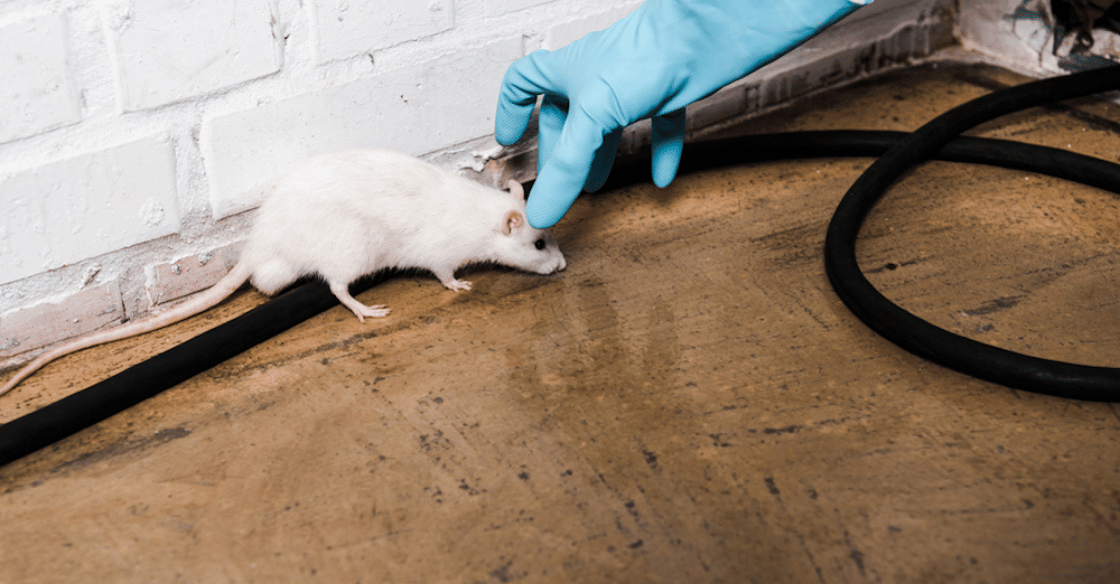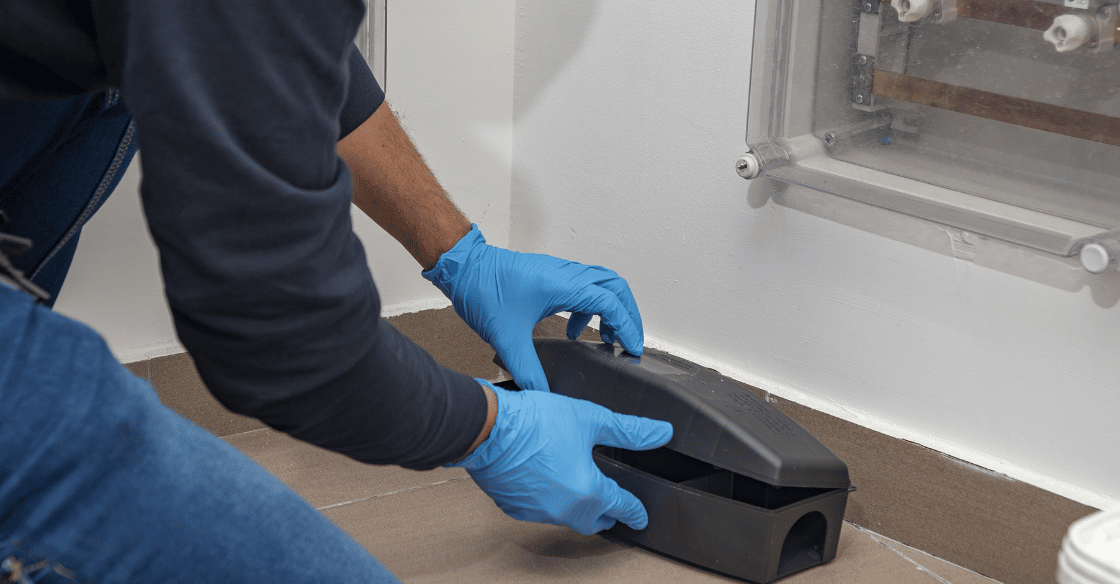The first signs of a rodent infestation include scurrying sounds on your floors, in cabinets, and even behind the walls. You might see some rat droppings or even notice a hole or two. There could even be a hint of musky odor, a telltale sign of rat urine.
Understandably, you want to get these unwelcome guests off your property as soon as possible. Not only can rats cause extensive damage to your home, but they also pose a significant health hazard.
But, before you set out poison traps, you might want to think twice. Having rat poison in your home or property can be toxic to you, your pets, and local wildlife. This article explores the dangers of rat poison and humane methods for poison-free rat control.
Types of Rat Poison Typically Used to Battle Infestations
Strychnine: This pesticide used to be incredibly popular for killing rodents because it is highly effective. It rapidly absorbs through mucous membranes, but the problem is that inhalation can also be deadly. It is currently only available to licensed pest control applicators.
Anticoagulants: After a U.S. court injunction banned strychnine for home use, a new generation of rat poison began making the rounds. This form serves as an anticoagulant that prevents the rat’s blood from clotting properly. Again, because of their toxicity, most have been outlawed for consumer use but are still accessible.
Bromethalin: Since anticoagulants have been outlawed for consumer use, other neurotoxins have been introduced to the market, including Bromethalin.
Unfortunately, the poison comes in a deadly form to house pets. When they ingest it, it acts quickly to poison your furry friend. There is also no antidote.
6 Not So Hidden Dangers of Rat Poison
To rid a property of rats as quickly as possible, homeowners may take drastic measures to eliminate the problem. While poison may get rid of the immediate rat problem, it can lead to more severe issues, including these six dangers:
- Rotting carcasses in walls: Often, rats build nests inside your walls. These areas are a “safe space” for rodents, and it’s where they’ll return to die after ingesting poison. Having a dead family or colony of rats rotting inside your walls can cause your home to stink for days, if not weeks.
There’s also a significant health hazard associated with having decomposing rats in your house.
- Bleeding rats around your home: Some well-known rat poisons cause a rat to bleed out, which can happen before a rat makes it back to a nest. As a result, you may wake up to find dead, bloody rats at random places in your home.
- Health hazards from toxic materials in your home: Keep in mind that a material designed to kill a rat is not exactly healthy for humans. The poison from traps can make its way to various surfaces in your home, posing a risk to your health.
- Risks to children: Kids can get their hands on anything, including rat poison. No matter how careful and diligent you are, having these chemicals around your family is not worth the risk. According to Scientific American, rat poison endangers 10,000 children in the United States every year.
The biggest dangers are present in homes with children under six years old due to the natural tendency of “exploration” at this age.
- Risks to pets: Like children, pets are prone to exploring areas where they don’t belong. Further, your pet may come in contact with the rats, either in passing or through ingesting one during a nocturnal hunting session. Even if your pet doesn’t get into the poison directly, accidental contact can be lethal.
- Kills wildlife: Even though a single dose of poison is enough to kill the rat, death is not instantaneous. Instead, the rodent continues munching on its poison-laden feast. By the time the rat finally keels over, it has an enormous toxic load in its system, and if another animal ingests the rat, that animal is now in danger.
Poison-Free Rat Control
There are other less dangerous and infinitely more humane ways to handle a rat infestation that doesn’t include the use of poison.
Keep Your Yard Maintained
Rats require food and shelter. An unkempt yard is an invitation to take cover, so proper yard maintenance can discourage them from setting up shop on your property. Keep your yard trimmed and avoid having dense shrubbery. Don’t allow piles of wood brush or debris to pile up.
If you compost in your yard, ensure that your compost containers have tight-fitting lids and are constructed of “rodent-proof” materials.
Install Snap Traps
If you’re going to kill a rat, snap traps are considered the most humane because they instantly kill a rat. They’re also environmentally friendly because they have no poisonous chemicals, and you can reuse them. Please do not use glue traps because they lead to terrible suffering.
Even though you might be annoyed at rats for taking up residence rent-free, no one deserves the agony of a glue trap.
Remove Access to Food Sources
Like shelter, food is a necessity for rodents. If you eliminate access, they will likely move to greener pastures. This step involves putting all food away and not leaving it on your countertops. You may also need to seal containers in cupboards and pantries.
Indoor plants can also pose a temptation. If you have fruit plants, nut trees, or large potted plants, you may need to move them outside.
Seal All Entry Points
Do a perimeter search of your home to see how rats have gained entry inside. You can also take this step as a preventive measure to avoid a future infestation. Look for small holes or cracks inside and outside your home. Even a space that’s just half an inch thick could be wide enough for a rat to squeeze through.
Contact a Pest Control Professional for Help
Even the most ardent animal lover is unlikely to welcome the idea of a rat infestation. Though rat poison might seem like a fast and easy option to solve your problem, the risks and dangers outweigh any potential benefit. We recommend exploring natural alternatives first, and if those fail or you need immediate relief, contact a professional pest control company to solve the problem for you.
At Attic Projects, we offer rodent waste removal, rodent proofing and removal. If you suspect a rodent infestation, contact us for a free inspection.
Recommended Article: How do Exterminators get Rid of Rats in Attic





